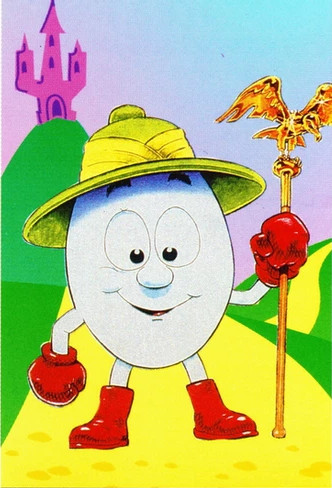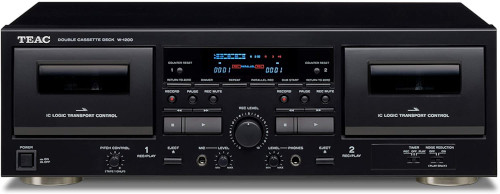Developer Interviews
This episode is part of a series of interviews with developers. Check out this page for more of them
Featured Image
The cover image for this episode uses a photo of Philip from Moby GamesPlayers
If you wish to support the Waffling Taylors, and the other shows in the network, you can over at Ko-fi.com/jayandjaymedia. However, supporting us is completely voluntary and not required at all.
Another way to support us is to shout out about us on social media or give us a rating on your podcatcher service of choice. The more people who listen to the show, the more shows we can do.
Show Notes
I honestly don’t know how we pulled this one off
to be fair The Oliver Twins are really nice people
we had Philip Oliver on this episode of the show. Philip Oliver is one half of the Oliver Twins, whose work includes (among many, many things) the Dizzy series of games.
Squidge
Grab your popcorn, we’re gonna hit you with nostalgia
Seriously both Andrew and Philip have been involved in so many games over the years, their official website lists 55 of them and that’s just the earlier titles. And this is something that Philip mentions in the episode:
Philip Oliver
30 games on the PC; 10 games on the PS1; one game on the N64: Glover; 19 PS2 games; 10 Xbox games; 11 GameCube games; 13 Wii games; 9 PS3; 21 Xbox 360; and 30 handheld games… and that’s just the Blitz Games ones
So combining that total (154) with the 55 “Oliver Twins” games from their website
source; I’ve not included the collections titles
we get 209 games.
That’s a lot of games, and not a duffer among them.
Let’s Talk About Dizzy
For those who don’t know, Dizzy is a super cute egg character who goes on platforming and puzzle based adventures. Dizzy looks like this:

seriously, how cute is this guy
Although Dizzy started out on the 8-bit consoles, there was a brand new game - Wonderful Dizzy - launched a few months before we recorded this interview

I know that I bleat on about this a lot, but we really do record these shows way in advance (click to enlarge) - a point proven by something that Philip says, "within days, they will be EA"
We’d always wanted to interview both Andrew and Philip, so the launch of the new game drove us to reach out proper.
But one thing I didn’t realise about the newer Dizzy titles
aside from the rights issue - technically Dizzy is owned by EA now, I guess?
is that all of the profits went to charity. In the case of the Dizzy collection on the Evercade, the profits were given to the National Videogame Museum in Sheffield.
Wonderful Dizzy & Looking Back
But why make a new Dizzy on a retro platform:
Philip Oliver
it is so expensive to make a game on a modern platform
And at the time the Spectrum Next was starting to pick up steam; so why not combine that with a new Dizzy game?
Philip Oliver
We suddenly realised that we can’t make a game that is worse than any of the other games, and that was absolutely obvious… so we were thinking that whatever we create, now that it’s some 25-30 years later, that everybody perceives it to be at least as good, if not better. And, really, we need to be aiming better.
I’ll leave it out of the show notes, but the compilation process that Andrew and Philip had for building the games is an amazing piece of engineering. AND, they worked it out themselves. Philip mentions PDS (Progammers Development System) when he talks about how he and his brother used to write applications, here’s a link about the PDS. But the interesting thing is that they only moved to this after building a number of games.
Whilst the Oliver Twins had moved on from it by the time we got hold of one, Squidge and I had started on the Amstrad CPC 464
here’s a link to a blog post I’ve written about it
and bringing that up brought about a wonderful journey which Philip took us on: their journey through the hardware of the 80s.
Philip Oliver
there’s a really important lesson you learn from a ZX81, do you know what it is? You need a better computer… you learn the terms really quickly, because they are things you haven’t got
Super Robin Hood & The Theory of Low-price Games
It seems that the Darling Brothers
the folks who set up Codemasters
had a great theory on how to sell games. A theory which boiled down to:
Sell them cheap, about £1.99 or £2.99 each. A price that low avoids piracy, because it would be more effort than it was worth to actually buy a copy for yourself. But is also means that the customer will have a much better time with a higher quality experience
Side note:
With a tape-to-tape copy of a game, you would end up having loading issues and longer loading times. This was down to a number of factors, but the chief among them being that tape-to-tape recording in consumer hi-fis was engineered specifically for analogue recording of music.

Typical dual cassette hi-fis were engineered to support tape-to-tape recording of music not digital signals
Programs which were stored on cassette tape were stored as PCM (Pulse-code Modulation) encoded digital signals. This is a way of taking a digital signal and storing it as analogue - which is a lossy conversion. Reading a lossy signal, passing it through an analogue system, and writing to another analogue system is incredibly lossy. Meaning that when you read that copied signal back, one which has a lot of data loss, into an analogue to digital converter (again, another lossy system), you would end up with lots of missing data or the reader having to interpret it multiple times.
For more information on this, check out this answer on the 8-bit computers Stack Exchange.
Combine the above theory with the idea that a lot of consumers would be more forgiving of a game if it was cheap, and you have a very happy consumer base.
Also, this:
Philip Oliver
Dizzy was a spin-off of Ghost Hunters
Philip also drops a knowledge bomb that not many non-developers know about when it comes to development:
Philip Oliver
You develop a good mapping system for doing backgrounds, and a collision system, and an animation system. And effectively you’re just redressing it, and putting a new image on it, and tweaking a few of the values, and putting it out again.
It’s true. As a developer, I’m hardly ever writing “new” code. This is because we’re forever solving the same problems. Sure, each of the new problems has a slightly different spin, but they all require the same solutions.
Don’t tell non-developers that though.
To be fair, it extends outside of development:
Squidge
Modern architecture: copy-paste, copy-paste, copy-paste
Source Control & The Oliver Twins
We’ll start this one off with a side note about source control.
First, source code is the computer code that developers write. As we build up an application or game, we need to make large sweeping changes to lots of different parts. Most applications and games are super complex, so making a “simple” change is almost never simple.
Keeping source control stable and always in a read-to-release format
this means that anyone can get the code, build it, and run whatever you were building
is a non-trivial task. So source control was created in an effort to make it all easier. It has a simple idea: all code is “checked in” to a single repository. When you make a change, that change is then stored against the repository. That way people can rewind through time and see what happened, reverting changes as they need to.
Source control for the early games was almost non-existant. At least in a way which makes sense to modern developers.
Philip Oliver
I’m going to say my code onto a floppy disk, hand that floppy disk over to you. You load my project up, big cut and paste into yours. Just check it compiles.
Scary stuff to a developer these days.
Philip’s Top Three
I asked Philip a really tough question towards the end of the interview:
Jay
If somebody is listening to this and said, "I don’t think I’ve ever played a game that Philip or Andrew have ever been involved in", what should they check out?
And Philip’s answers really are the best of the best:
Blitz Games:
- Fusion Frenzy
- Zapper: One Wicked Cricket
- Epic Mickey 2: The Power of Two / Puss in Boots
Outside of Blitz Games:
- SkySaga: Infinite Isles
- Fantastic Dizzy
- Fantasy World Dizzy
There were a lot of games listed in this segment, so don’t tie yourself down to just these six. Definitely track as many of them down and give them a shot.
External Links of Interest
- Support us on Ko-Fi
- Our Facebook page
- Us on Twitter
- The Oliver Twins’ website
- The Oliver Twins on Twitter
- The Oliver Twins on Facebook
- The Game Dragons
- This is being shut down soon, though
- The Oliver Twins book
- Panda Sprites
- Written by The Oliver Twins
- Spectrum Next
- Programmers Developer System
- Pulse-code Modulation
- Copying tapes “back in the day” on the -bit Stack Exchange
- Raw with Jay: Play and How Important it is
- Panivox
- The new project that The Oliver Twins are involved with
- The Yolk Folk - an amazing Dizzy fansite
Music
Links to the music used in the podcast can be found below. Definitely check them out, because they're amazing tracks by awesome musicians.
- Intro music is Among The Stars, from the Cosmos Music Pack by Muz Station Productions
- Spoiler Break music is Spectrum (Subdiffusion Mix) by Foniqz (BandCamp)
- Pallet Cleanser music is Breath Deep Breath Clear (Wu Chi) by Siobhan Dakay
- Outro Music is I N e e d Y o u 私の側て by G.H (removed from BandCamp)
Games Covered
We mentioned 33 games in this podcast. In the following order, those games where:- Dizzy
- The Mummy Returns
- Fusion Frenzy
- Frogger 2
- Glover
- Wonderful Dizzy
- Mystery World Dizzy
- Panic Dizzy
- Dreamworld Pogie
- Wonderland Dizzy
- Crystal Kingdom Dizzy
- Fantasy World Dizzy
- Treasure Island Dizzy
- Pac-Man
- Super Robin Hood
- Ghost Hunters
- Grand Prix Simulator 2
- Jet Ski Simulator
- Panic
- Monsters
- Ghostbusters
- The Hobbit
- The Lord of The Rings
- The Smurfs
- Super Mario Bros.
- Zapper: One Wicked Cricket
- Puss in Boots
- Epic Mickey 2: The Power of Two
- SkySaga: Infinite Isles
- Ghostbusters 2
- Pro Ski Simulator
- space Invaders
- Drop Zone